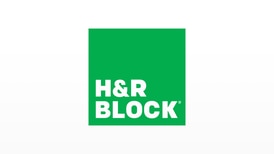
Overall Ranking
4.25/5
Overview
5/5
4.5/5
4.75/5
4/5
3/5
Looking to up your investment game in an easy way? If you have the money, the CrowdStreet platform is a foot in the door of commercial real estate investing.
Editor's Note
You can trust the integrity of our balanced, independent financial advice. We may, however, receive compensation from the issuers of some products mentioned in this article. Opinions are the author's alone. This content has not been provided by, reviewed, approved or endorsed by any advertiser, unless otherwise noted below.
If you’re looking to spread your investments into sophisticated commercial real estate, CrowdStreet is a platform you need to check out. It’s only available for larger investors, and you will have to be considered an accredited investor (more on that later) in order to participate. But if you are, this platform can be an excellent complement to a portfolio otherwise dominated by stocks and bonds.
About CrowdStreet
Most real estate crowdfunding platforms are peer-to-peer (P2P) marketplaces, that bring both real estate developers (sponsors) and those who want to invest in their projects together on the same website.
Launched in 2014, and based in Portland, Oregon, CrowdStreet is an award-winning online real estate investing platform that invests in commercial real estate. Since its founding, its investor community–which numbers over 100,000–has invested over $1.90 billion in 488 offerings, secured by real estate with a value of more than $13 billion. The platform combines commercial real estate investment expertise with technology, giving individual investors direct access to institutional-quality investment opportunities.
Named Investopedia’s Best Overall Real Estate Crowdfunding Site for 2021, CrowdStreet claims to be the largest and most diverse direct investment marketplace for commercial real estate opportunities. That means that your investment goes directly to the project’s sponsors.
Though the company is not Better Business Bureau accredited, the agency nonetheless gives CrowdStreet an A+ rating on a scale of A+ to F.
How Do You Qualify to Invest with CrowdStreet?
To invest with CrowdsSreet, you need to be an accredited investor. This is true of most–but not all–real estate crowdfunding platforms.
The requirements to be an accredited investor are as follows:
- You must have an income that exceeded $200,000 (or $300,000 together with a spouse) in each of the prior two years, and reasonably expect the same for the current year, OR
- You must have a net worth in excess of $1 million, either alone or together with a spouse, and that amount cannot include the value of your primary residence, OR
- You are a holder in good standing of the Series 7, Series 65, or Series 82 licenses.
This requirement restricts participation to high-net-worth investors. (Three real estate crowdfunding platforms that don’t require being an accredited investor include Fundrise and RealtyMogul. You can get started on those platforms, then move onto CrowdStreet if and when you reach accredited investor status.) But if you are an investor who qualifies as accredited, please read on.
Learn more: Real Estate Crowdfunding with Fundrise
Find out: Is RealtyMogul the Easiest Way to Invest in Commercial Real Estate?
How CrowdStreet Works
When you sign up for the CrowdStreet platform, you’ll have full access to their Marketplace. Through the Marketplace, investors have access to institutional-quality real estate investment opportunities across every asset class and risk profile, allowing you to review, compare, and choose the right investment opportunity for you and your portfolio. Whether you’re a seasoned real estate expert or completely new to real estate investing, they make it easy to find the approach that’s right for you.
Just like you can pick individual stocks and bonds, investors can pick individual deals on the CrowdStreet Marketplace. A direct real estate investment is just that–individuals can invest directly into the equity of the project of their choosing, not a fund that picks the assets for them. As a passive investor, you’ll leverage the power of online syndication and join dozens, potentially hundreds, of other individual investors to contribute to the equity stack in a real estate deal. Your capital will go directly to the sponsor/issuer for use in the proposed project.
CrowdStreet’s Capital Markets team has relationships with best-in-class sponsors across the country, bringing dozens of potential deals to their Investments team for a more in-depth review every month. The Investments team puts each sponsor and their deal through their multi-stage review process, looking for institutional-quality investment opportunities that meet the standards of the Marketplace. First, each new sponsor is subject to the same, objective, review process and:
- Undergoes a Background check;
- Has their track record reviewed;
- And is given a sponsor designation.
Then the deal itself is reviewed. When reviewing a potential deal, the team asks four key questions:
- Is the project within a core competency of the sponsor?
- Do the materials demonstrate professionalism and conform to industry standards?
- Are the deal assumptions supported by market data?
- Does the project match CrowdStreet investor preferences in terms of asset type, projected returns, and location?
Only those deals that pass through this review process are included in the Marketplace for investors to further evaluate the merits.
CrowdStreet’s Asset Performance team continually evaluates their hundreds of closed projects to get better insights into the level of exposure and risk across their portfolio. They are also working with each of the sponsors to get individual asset-level information to better understand how they may perform in the coming months. The team constantly evaluates market drivers like rent rates, vacancy rates, net absorption, and asset-specific drivers, including rent-payments delinquency rates, ability to make loan payments, loan maturity dates, and more to determine how specific assets are performing and the health of the overall portfolio. All of that data contributes to the Investments team’s review of new deals for the CrowdStreet Marketplace.
Types of Deals You Can Invest In with CrowdStreet
CrowdStreet is somewhat different from other real estate crowdfunding platforms that may invest in single-family properties, such as fix-and-flips. Instead, the deals offered are strictly in commercial real estate.
Criteria for investment deals are as follows:
- Property type: Retail, office, industrial, mixed-use, multifamily (apartment houses), hospitality, senior housing, and storage facilities. Some investments are in individual properties, while others are real estate investment trusts (REITs) that invest in a group of similar properties.
- Property value range: CrowdStreet looks to give investors access to projects with a value range of between $10 million and $75 million, but there is no set maximum property value. Against those property values, they typically look to raise anywhere from $3 million to nearly $30 million.
- Minimum investment: Each deal has a required minimum investment ranging from $25,000 and up.
- Expected investment returns and terms: Targeted investment returns and hold periods vary depending on the deal and risk profile.
- Target markets: CrowdStreet primarily focuses on secondary markets across the U.S., although deals can be found in any metro. This means you will be able to diversify your holdings geographically, as well as between different property types.
Most deals on the platform are set up in the following format:
- Common or JV equity
- Preferred equity
- Mezzanine or second position debt
Signing Up with CrowdStreet
You start by creating an account. You can register using either Google or LinkedIn, or by providing information on the platform. This includes your first and last name, your email, and a password that you will create. You must then accept their terms of service.
You will have to qualify as an accredited investor in order to invest (although not to create an account), so you may be asked to fill out a certification and provide necessary documentation as proof of your income and or net worth when you submit your first offer.
Once you’ve registered for the platform, you’ll be able to monitor the investment performance of your holdings by using the online dashboard. It will provide project updates, track investment performance versus targets, and download project documents.
Browsing Investment Opportunities
Once you sign up for the platform, you’ll be able to browse the various investment opportunities available. Some are existing properties, while others are brand new development projects.
CrowdStreet even has a page that shares the performance of fully realized deals so you can see the results of investments from start to finish.
Once you decide on one or more deals you want to invest in, choose a dollar amount, and submit your investment offer. Since CrowdStreet is a direct-to-investor marketplace, you’ll be investing directly with the project sponsor.
You should not assume that the deals on the performance page produced returns that are the norm for commercial real estate investments, but it is an indication of the returns that are possible with this type of investing.
Customer Support
Customer service is available by both phone and email. You can also contact the company using the online customer contact form. Customer service is available from 8:30 AM to 5:00 PM, Pacific Time, Monday through Friday.
Why Invest with CrowdStreet?
Two of the major reasons to invest with CrowdStreet are common to all real estate investing, including real estate crowdfunding.
The first is diversification. By investing through a real estate crowdfunding platform like CrowdStreet, you’ll be diversifying your portfolio out of strictly stocks and bonds, and into real estate. That will give you a greater level of diversification than you’ll have with a portfolio comprised entirely of paper assets.
Secondly, commercial real estate runs on different investment cycles than stocks and bonds. Where stocks and bonds might fall together, due for example to rising interest rates, commercial real estate can continue to pay income distributions, and even rise in value as investors flee financial assets in favor of real estate.
CrowdStreet Pros and Cons
Signing up is free — CrowdStreet does not charge a fee to register for their platform or to make investments in the individual deals and funds offered by sponsors. Sponsors pay a fee to CrowdStreet in order to be on the Marketplace and many sponsors pass that fee onto the individual deals and funds (and, indirectly, to the investors in the deal). Furthermore, sponsors charge fees that vary widely and are dependent on a variety of factors, but those fees are disclosed on the offering detail page and other offering documents. CrowdStreeet does offer investment products and services through their CrowdStreet Advisors and CrowdStreet Investments entities and charge fees on these services and investment products. Those fees generally range from .5% to 2.5% of invested capital on an annual basis.
Investments are IRA eligible — You can choose to fund many of your investments on CrowdStreet using a self directed IRA account (each deal differs).
Availability — CrowdStreet is available to U.S. accredited investors in all 50 states.
Portfolio diversification — Adding commercial real estate to an investment portfolio can provide a greater level of investment diversity and continue to perform well even when stocks and bonds are in a bear market period.
You must be an accredited investor — Which excludes small and medium sized investors.
Large minimum investment — The minimum initial investment is $2,000, which is high in the real estate crowdfunding space. However, that’s just the minimum initial investment. Some deals may require a higher minimum.
Commitment time — The life of each investment will vary greatly (some longer than 10 years).
Limited liquidity — As is typical of real estate crowdfunding platforms, liquidity is very limited. Investments are long-term, and you must generally expect to remain in each deal until it’s completed.
FAQs
Why does CrowdStreet require that I be an accredited investor?
Per the SEC, investors in private offerings exempt from registration with the SEC are generally required to be accredited. The offerings on the CrowdStreet Marketplace are generally private offerings exempt from registration, so investors must be accredited.
Why does CrowdStreet concentrate on commercial investments only?
The platform is looking to be involved in larger deals, that also have the potential to offer greater security, both in terms of the properties themselves, as well as the tenants that occupy them. Investments in smaller properties, like single family properties, are a very different type of investment from commercial real estate, and often better suited for direct individual investment.
Do I need to have experience investing in commercial real estate?
Obviously, it will help to have some experience in the field. However, you don’t need to be an expert. CrowdStreet has an in-depth set of resources that will provide you with a wealth of information. Even if you know nothing whatsoever about commercial real estate, you’ll find plenty of information there that will give you the basics.
I get that I’ll be receiving income from the investments. But what happens to my principal?
Depending on whether a deal is structured as debt, equity, or a hybrid, you may receive a payout at the end of the term, provided the deal performed well. On a debt-based deal, your invested principal should be returned at maturity. With an equity deal, you’ll receive your principal, as well as any additional investor returns as determined by your investor agreement. With a hybrid deal, you get a return of your invested principal, plus a predetermined share of additional investor returns.
But once again, it is possible you may lose some or even all of your invested principal should a deal not fully materialize as expected.
Alternatives
For the accredited investor, EquityMultiple is a good alternative. With EquityMultiple, you can purchase ownership interests in a commercial real estate project. The minimum investment here is $5,000 and your purchase means you’ll also share the profits or any losses for a project. You can read more about EquityMultiple in our review.
Related: Crowdstreet vs Fundrise vs Streitwise
Bottom Line
CrowdStreet offers a serious investment diversification away from traditional stocks and bonds. Since it has the potential to perform well when financial assets are in decline, it can improve the long-term performance of your portfolio when it occupies a generous position in your investment mix.
The major downside of CrowdStreet is that it’s designed for large investors. Unless you are an accredited investor, you won’t be able to participate on the platform. However, as noted above, there are other real estate crowdfunding platforms you can invest in that don’t require being an accredited investor, and some have required investment minimums of just $1,000.
But if you are an accredited investor, and you’re looking to spread your portfolio beyond traditional financial assets, real estate crowdfunding through CrowdStreet is well worth investigating.
If you’d like more information, or if you’d like to sign up to begin investing, visit the CrowdStreet website.




